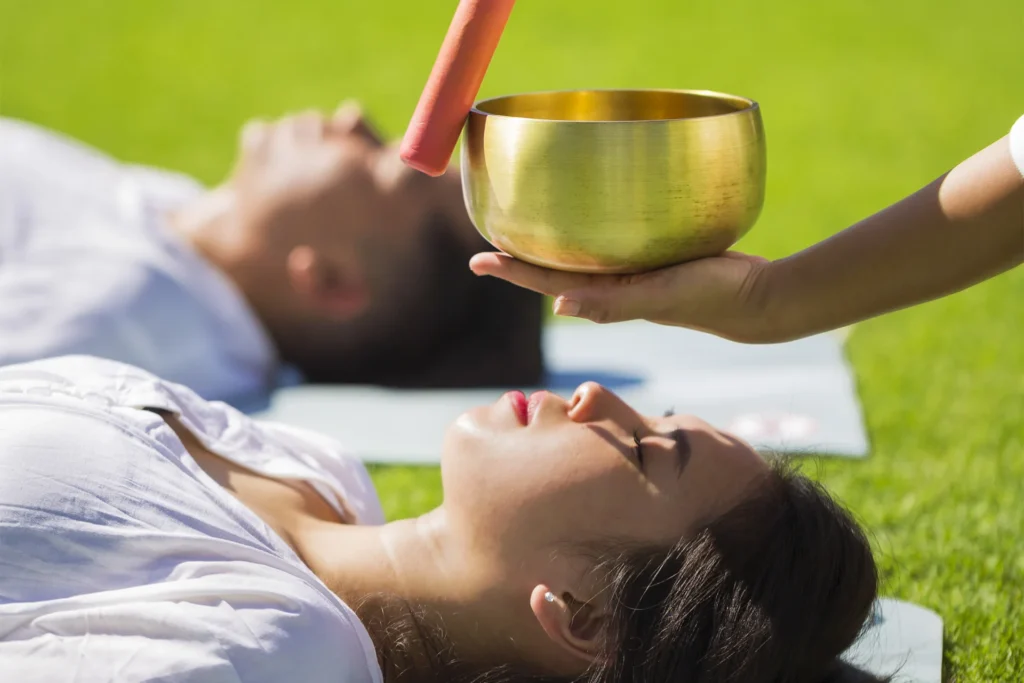Characterised by memory loss, amnesia has the potential to grossly impact everyday life, reflecting onto personal, professional, and social life. While conventional treatments basically revolve around medication and cognitive therapy, a traditional holistic wellbeing practice, yoga, has over time evolved as an emerging complementary strategy. This blog looks at how yoga may contribute to healthy cognitive functioning with respect to its possible benefits in terms of memory and clarity of mind.
Brief Overview of Amnesia
Amnesia is the loss of memory and can manifest in the following ways:
Retrograde Amnesia: Loss of previously acquired memories
Anterograde Amnesia: Inability to form new memories
Transient Global Amnesia: A sudden, temporary loss of memory.
Different causes include neurological diseases, trauma to the head or brain, and psychological trauma and chronic stress. While the conventional treatment often includes a combination of medication, therapy, and lifestyle changes or modifications, new research claims that at times, practices like yoga could supplement the treatment in managing and even improving cognitive functions.
The Science Behind Yoga and Cognitive Function
It is an ancient Indian practice combining postures, breathing techniques or pranayam, meditation, and ethical principles. The practice gives much more in terms of physical fitness than benefits spread into the mental, emotional, and spiritual spheres. Here’s how yoga might affect cognitive functioning and memory:
1. Reduces stress and supports cognitive health
It is known that chronic stress impairs cognitive functions, including memory. This is so because the bodily response to stress triggers the release of cortisol—a hormone which in large quantities is potentially detrimental to regions of the brain concerned with memory, like the hippocampus.
This is because yoga combines mindfulness, relaxation, and controlled breathing techniques that work harmoniously in sync to help mitigate the influences of stress. In a way, regular practice of yoga is seen to reduce cortisol levels, reduce anxiety, and bring about relaxation. By removing stress, yoga offers a much more favourable environment for cognitive health and memory retention.
2. Blood Circulation and Enhanced Brain Function
Certain yogic practices—inversions and postures enhancing circulation—can help in blood flow to the brain. That’s because good flow is how you keep the brain healthy, getting adequate supplies of oxygen and nutrients.
The inverted poses, like Downward Dog, Headstand, and Shoulder Stand, promote blood circulation, which can help raise cognitive abilities. Improved blood flow may be useful to memory by giving the brain cells all they need to work at their best.
3. Neuroplasticity and Yoga
Neuroplasticity refers to the brain’s ability to change itself through the formation of new neural links. It is important in learning and memory. In this respect, yoga can promote neuroplasticity through practices exercised with concentration and mindfulness.
Several studies from meditation and mindfulness practices in yoga propose that brain plasticity can be enhanced. If practised regularly, then the practitioners may achieve brain flexibility and a more strengthened memory, which, in turn, reduces some amnesic effects.
Yoga Practices for Cognitive Enhancement
Study concludes several detected yoga practices to sustain positive memory and cognitive function over time as follows:
1. Asanas (Postures)
Tree Pose or Vrksasana encourages the practitioner to have stability and balance, significant to mental focus.
Downward Dog or Adho Mukha Svanasana energises the body, increasing the blood flow to the head.
Child’s Pose or Balasana, on the other hand, has quieting effects and reduces anxiety, inducing relaxation.
2. Pranayama (Breathing Exercises)
Nadi Shodhana, or Alternate Nostril Breathing, shall then bring balance to the nervous system, decelerate the heart rate, and reduce the level of anxiety.
Kapalabhati (Skull Shining Breath): It releases energy to the mind and clears away mental fog, which helps to make better use of memory.
3. Meditation
Mindfulness Meditation: It induces states of current awareness and helps much in stressful conditions; finally, it leads to the functional enhancement of cognitive focus and memory.
Loving-Kindness Meditation (Metta): It brings emotional healing and positive thinking, and thus it indirectly helps in maintaining cognitive health.
How to Make Yoga an Integral Part of Your Day
To make the most out of yoga for maximising cognitive health, practice should be regular; here is how:
1. Establish a regular practice: Daily, for a minimum of 15-30 minutes—one is interested in building the accumulated benefit of yoga.
2. Execute practices for beginners: One can do basic posture-related practices, building on to complex postures as established on the foundation of strength and flexibility.
3. Merge Yoga with other Cerebral Workouts
Combine yoga with other cognitive-enhancing activities, such as puzzles, reading, or learning new skills, to give a full-spectrum approach to better memory.
4. Consult with a Professional
Where specific health problems or conditions are concerned, it is instructive to consult with a certified yoga instructor or avail yoga classes in Goa to gain tailored yoga practices.
Case Studies and Research
While these may certainly draw on anecdotal data and personal experience, there are some substantial scientific insights into the likely benefits of using yoga to improve cognitive health. In the study published in the Journal of Clinical Psychology in 2018, it was established that subjects who practised yoga and mindfulness had increased cognitive power and reduced symptoms of anxiety and depression.
A 2020 review in the journal Frontiers in Psychology argued in favour of the likelihood that yoga and meditation provide practices that lead to favourable effects on brain structure and function, ultimately contributing to better memory and cognitive performance.
Another study, in the Journal of Alzheimer’s Disease in 2019, went on to state that mindfulness-based interventions, such as yoga, can aid individuals with cognitive impairments by improving attention and memory.
Conclusion
Although yoga for amnesia, its regimented pursuit as part of integrative care is going to benefit amnesiac cognitive health very much. By reducing stress, enhancing blood flow, and inducing neuroplasticity, yoga will encourage all aspects of brain health and memory. Yoga also offers a conjoined therapeutic option in integrating conventional treatment and memory exercises.
Just as it is with all health practices, individual results may vary. One has to get into yoga routinely with a commitment to practising it regularly. For those struggling with memory problems, incorporating yoga into their routine might be a way to gain a more balanced, healthier mind.








